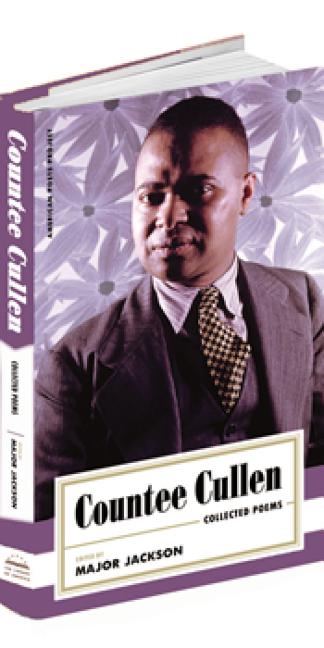Major Jackson is the author of six books of poetry, most recently Razzle Dazzle: New & Selected Poems (2023). His edited volumes include: Best American Poetry 2019, Renga for Obama, and Library of America’s Countee Cullen: Collected Poems. He is also the author of A Beat Beyond: The Selected Prose of Major Jackson edited by Amor Kohli. A recipient of fellowships from the Fine Arts Work Center in Provincetown, Guggenheim Foundation, National Endowment for the Arts, and the Radcliffe Institute for Advanced Study at Harvard University, Major Jackson has been awarded a Cave Canem Prize and Pushcart Prize, and has been honored by the Pew Fellowship in the Arts and the Witter Bynner Foundation in conjunction with the Library of Congress. He has published poems and essays in American Poetry Review, The New Yorker, Orion Magazine, Paris Review, Ploughshares, Poetry, and Poetry London. Major Jackson lives in Nashville, Tennessee where he is the Gertrude Conaway Vanderbilt Chair in the Humanities at Vanderbilt University. He serves as the Poetry Editor of The Harvard Review. He is an elected member of the American Academy of Arts & Sciences.

-
Leaving SaturnPoemsFrom"Born under Punches"
In that darkness,
Speakers rose like
Housing projects,
Moonlight diamonded
Mesh-wire panes.
What was it that bloomed
Around his curled
Body when the lights
Came up, fluorescent,
Vacant, garish?
The gym throbbed
With beats & rage
And his eyes darted
Like a man nailed
To a burning crucifix.
 Leaving Saturn: Poems
Leaving Saturn: Poems -
Leaving SaturnPoemsFrom"Rock the Body Body"
At 10, I did the freak with Nikki Keys
In a stairway at the Blumberg Housing Projects
As the music came to us on the 18th floor
Like the need for language or the slow passing
Of jets. A dare, we were up close, all pelvis
Taking in measured breaths before going down
Like a pair of park pigeons. We could have crushed
pebbles, thrown fine specks of dust
At the moon. We formed the precise motion
Of well-oiled gears fit to groove. This was three years
Before I would have sex for the first time,
Before I would discern the graceful tangle
Of stray gods, the bumbling dance of mortals.
 Leaving Saturn: Poems
Leaving Saturn: Poems -
Leaving SaturnPoemsFrom"Between Two Worlds"
At Club de Lisa’s,
1946, a party of white
Patrons pulling back
The curtain separating
*
The races. Sound
Scopes, Rocksichords,
Oboes. 5 billion
People on this earth
*
All out of tune.
Minutes from
The cracked bell
I plot a map
*
Of stars: Ursa Major
to Vine & 2nd & order
This gathering of
Intelligent earthlings
*
To embark upon tonight’s
Spaceship – Ihnfinity, Inc.
Cosmic koras, bassoons,
Sharp, brass trumpets.
 Leaving Saturn: Poems
Leaving Saturn: Poems
“These poems truly show the range of Jackson's formal talents and his capacity for expanding the lyric potential of narrative . . . there is much to absorb on a second and third reading, and there is marked brilliance in the dazzling spins of language, easy in its shifts among idioms and registers . . . ” —Rain Taxi [on Hoops]
"Jackson is in step, but he's also out there on the sidelines watching, with a keen eye for the tender moment, a rage at unfairness, a clever perception of vision where others might see only craziness. With such an auspicious beginning, what a future lies ahead of him." —New Orleans Times-Picayune [on Leaving Saturn]
"In this winning debut collection, Major Jackson begins as a poet of the Philadelphia projects, then projects himself into the wider arena of American Literature. Leaving Saturn marks the arrival of a poet who could be the Langston Hughes of North Philadelphia . . . “ —George Held, The Philadelphia Inquirer
Selected Works

- Print Books
- Bookshop

- Print Books
- Find your local bookstore (via IndieBound)
- Powell's
- Barnes & Noble
- Alibris
- E-Books
- Kobo
- Google Books
- Barnes & Noble


- Print Books
- Powell's
- Barnes & Noble
- Alibris
- Abe Books
- E-Books
- Kobo
- Barnes & Noble